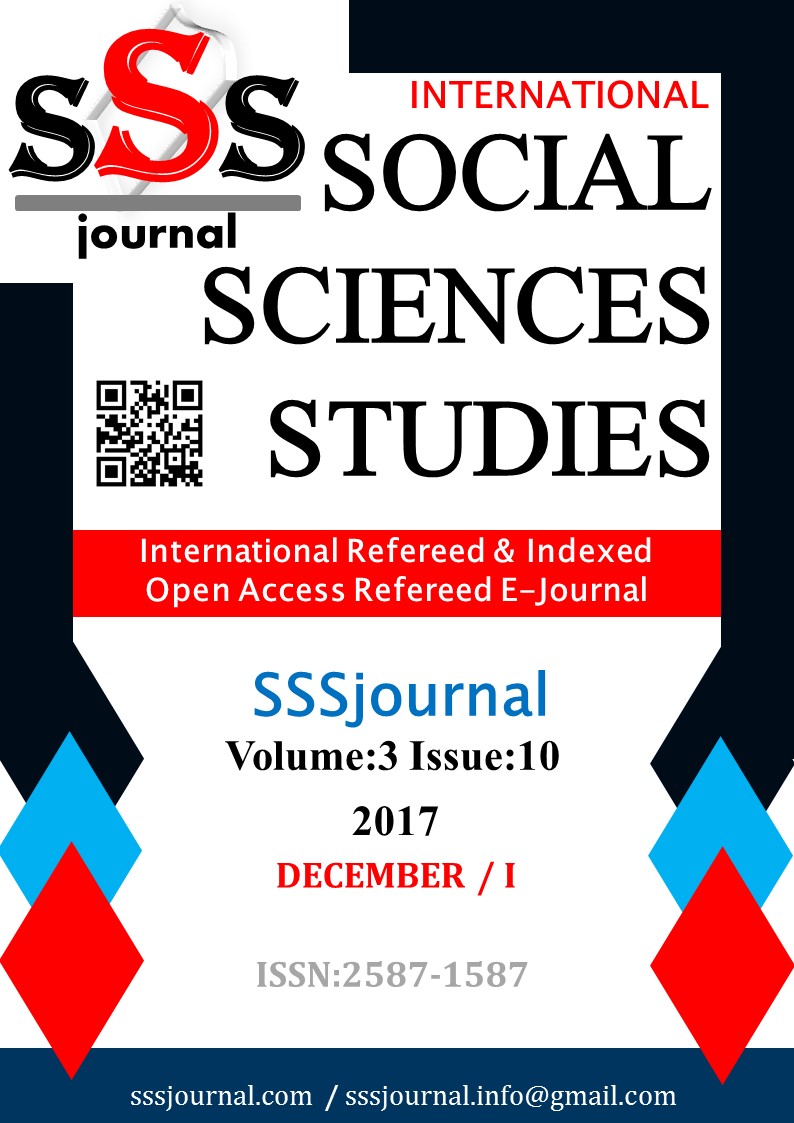Author :
Abstract
Dünyada her yıl milyonlarca insan gönüllü veya zorunlu olarak göç etmektedir. İnsanlık açısından trajik ve son derece karmaşık sonuçlar doğuran göçlerin başında zorunlu göçler gelmektedir. Bu tür göçlerin gerçekleşmesinde savaşlar, iç çatışmalar, siyasal baskılar ve yoksulluğun yanı sıra kıtlık, kuraklık, sel ve deprem gibi doğal afetler de önemli rol oynamaktadır. 23 Ekim 2011 ve 9 Kasım 2011 tarihlerinde Van'da meydana gelen depremler, yüz binlerce insanın (belli bir süreliğine de olsa) deprem bölgesi dışındaki alanlara göç etmesine yol açmıştır. "Deprem ve Göç: 2011 Van Depremi Örneği" adlı bu proje kapsamında, söz konusu tarihlerde meydana gelen depremin neden olduğu göçün boyutu ve etkileri incelenmiş, ayrıca depremin insanların geleceğe yönelik kalıcı göç eğilimleri üzerindeki etkilerinin belirlenmesine çalışılmıştır. Bu amaca yönelik olarak depreminin etkili olduğu kırsal ve kentsel alanlardaki, farklı toplumsal katmanları kapsayacak şekilde, 1500 kişi ile yüz yüze görüşülerek 93 sorudan oluşan anket uygulaması yapılmıştır. 644 kişinin yaşamını yitirdiği depremde, depremin etkilediği alanlarda bulunan 101.000 konutun yaklaşık 68.000'i çeşitli şekillerde hasar görmüştür. Depremden sonra yaklaşık 250.000 kişi geçici olarak il dışına göç etmiştir. Depremin ardında gerçekleşen göçler genellikle iklim şartlarının daha elverişli olduğu Akdeniz, Ege ve Marmara bölgelerine yapılmıştır. il bazında en çok göç alan mekan İstanbul olmuştur. İstanbul'u Mersin, Antalya, Ankara, Adana, İzmir ve Bursa izlemektedir. Depremin ardından il içinde ev, sokak, mahalle veya ilçe değişikliği gibi çeşitli şekillerde yer değiştirmeler olmuştur. Saha çalışmasında elde ettiğimiz sonuçlara göre il içerisinde yer değiştirenlerin oranı % 22'dir. Depremden hemen sonra yaklaşık her dört kişiden birisi il dışına göç etmeyi düşünmesine rağmen, arada geçen süre uzadıkça bölge halkının il dışına göç etme eğilimi de azalmış durumdadır.
Keywords
Abstract
Every year millions of people in the world voluntarily or compulsively migrate. there are forced migrations at the beginning of migrations which have tragic and extremely complicated consequences for humanity. In the realization of such migrations, natural disasters such as wars, internal conflicts, political oppressions and poverty as well as scarcity, drought, flood and earthquake play an important role. The earthquakes that occurred in Van on September 23, 2011 and November 9, 2011 caused hundreds of thousands of people to migrate to areas outside the earthquake zone (even for a certain period). Within the scope of this project entitled "Earthquake and Migration: 2011 Van Earthquake Example", the size and effects of migraine which caused the depression that occurred in the said dates were examined and the effects of the depreminated people on the future migration tendencies towards the future were tried to be determined. For this purpose, a questionnaire consisting of 93 questions was made face to face with 1,500 people, covering different social strata in rural and urban areas where depression was effective. In the earthquake that 644 people lost their lives, about 68,000 of the 101,000 dwellings in areas affected by the earthquake were damaged in various forms. After the earthquake, some 250,000 people temporarily migrated out of the province. The migrations that took place behind the depression were made mostly in the Mediterranean, Aegean and Marmara regions where the climatic conditions are more favourable. Istanbul has been the most migrated province in the province. It is followed by Mersin, Antalya, Ankara, Adana, Izmir and Bursa. The depression has then changed places in the province, such as home, street, neighbourhood or county change. According to the results obtained in fieldwork, the ratio of displaced persons in the province is 22%. Immediately after the earthquake, one of every four people thought that they would migrate out of the province, while the proportion of the people of the region migrated out of the province decreased as the time passed.
Keywords
- AFAD, (2013). Van Valiliği İl Afet ve Acil Durum Müdürlüğü Kayıtları, Van.
- AFAD, (2013). Van Valiliği İl Afet ve Acil Durum Müdürlüğü Kayıtları, Van.
- AidWatch. (2006). U.N. Office of the Special Envoy for Tsunami Recovery. Reuters AlertNet. Accessed 24December, 2006. Available from (http://www.alertnet.org/printable.htm? URL¼/db/crisisprofiles/SA_TID.htm (Erişim: 15.01.2017).
- Alscher, S. (2010). "Environmental Factors in Mexican Migration: The Cases of Chiapas and Tlaxcala". (Editors: Tamer Afifi, Jill Jager), Environment, Forced Migration and Social Vulnerability, pp.171-185, Springer Heidelberg Dordrecht London New York.
- Deniz, O. & Yıldız, M.Z. (2016). "2011 Van Depreminin Kentteki Sığınmacılar Üzerine Etkisi", Doğu Coğrafya Dergisi, 2(35):63-74.
- EM-DAT. (2016). CRED International Disaster Database. Available from http://www.emdat.be, (Erişim: 03.02. 2017).
- Etienne, P. (2010). "Climate and Migration: A Synthesis". (Editors: Tamer Afifi l Jill Jager), Environment,Forced Migration and Social Vulnerability, pp. 73-86, Springer Heidelberg Dordrecht London New York.
- Gündoğdu, O. (2009). "Van ve Çevresinin Deprem Tehlikesi", Van Kent Sempozyumu, 1-2 Ekim 2009, s. 95- 114, Van.
- Hacısalihoğlu, İ.Y. (2001). Türkiye'nin Kentsel Gelişim Süreci ve 1999 Marmara Depremi, Çantay Kitabevi, İstanbul.
- Intergovernmental Panel on Climate Change (IPCC). (2007). Impacts, Adaptation and Vulnerability –Contribution of Working Group II to the Fourth Assessment Report of the Intergovernmental Report on Climate Change. Cambridge University Press, New York.
- International Federation of Red Cross (IFRC). (2008), China: Sichuan Earthquake. Emergency AppealNumber MDRCN003. GLIDE num. EQ-2008-000062-CHN.pp.3. 30 May 2008, (http://www.ifrc.org/docs/appeals/08/MDRCN003revised.pdf, (Erişim: 13.02.2017).
- IOM. (2011). Climate Change, Migration and Critical International Security Considerations, Report No. 42. Geneva. (http://publications.iom.int/system/files/pdf/mrs42.pdf), (Erişim: 13.02.2017).
- Myers, N. (1997). "Environmental Refugees". Population and Environment, 2(19):167–182.
- Myers, N. (2002). "Environmental Refugees: A Growing Phenomenon of the 21st Century", Philosophical Transactions of The Royal Society, B 357: 609–613.
- Pampal, S. (2000). Depremler, Alfa yayınları, İstanbul.
- SÜR, Ö. (1993). "Türkiye’nin Deprem Bölgeleri", Türkiye Coğrafyası Araştırma ve Uygulama Merkezi Dergisi, Sayı: 2, s.53-68.
- Şengül, M. & Turan, M. (2013). "Erciş Depremi Örneğinde Afet Sonrası Geçici Yerleşim Alanlarında YönetimUygulamaları ve Sorunları / Administration and Problems of Post Disaster Temporary Settlements in Exampleof Erciş Earthquake". Mülkiye Dergisi, 36 (1-274), 113-148. Retrieved from http://dergipark.gov.tr/mulkiye/issue/5/52
- Tabban, A. (2000). Kentlerin Jeolojisi ve Deprem Durumu, TMMOB Jeoloji Mühendisleri Odası Yayınları No: 56, Ankara.
- Tuncel, M., Erer, S., Sergün, Ü. & Göçmen, K. (1978). Çaldıran-Muradiye Depremi, İstanbul Üniversitesi, Edebiyat Fakültesi Yayın No:2468, Edebiyat Fakültesi Matbaası, İstanbul.
- Van Valiliği, (2012). 23 Ekim ve 9 Kasım 2011 Van Depremi, (Yayımlanmamış Bilgi Notu)
